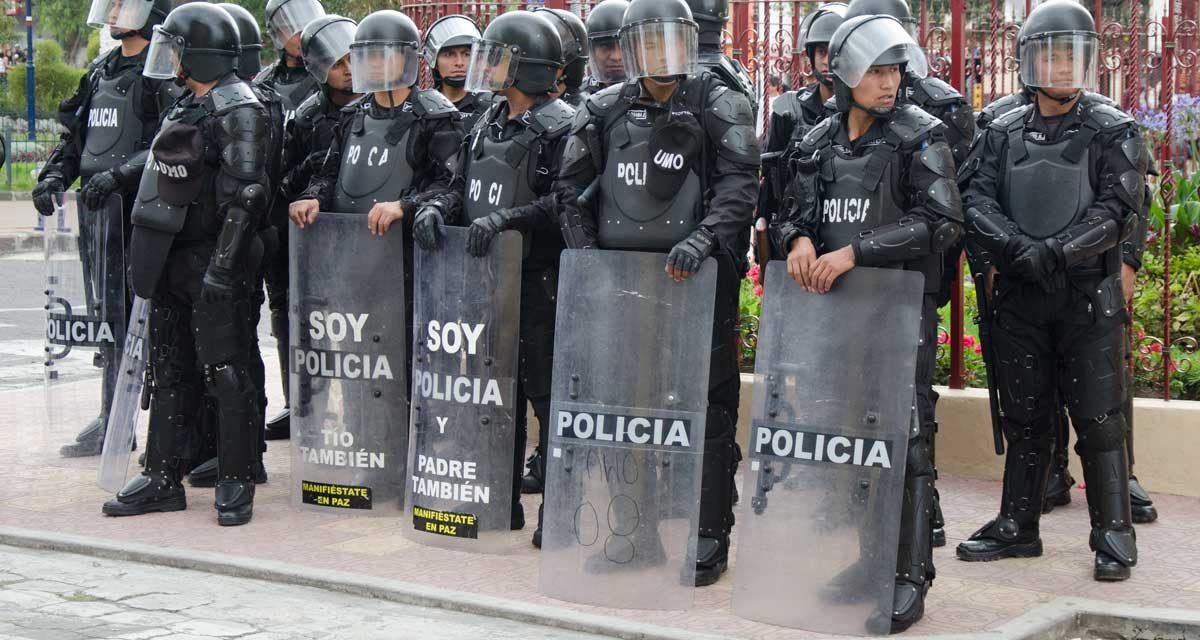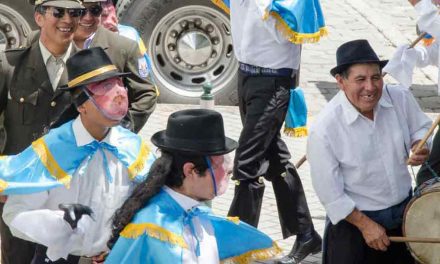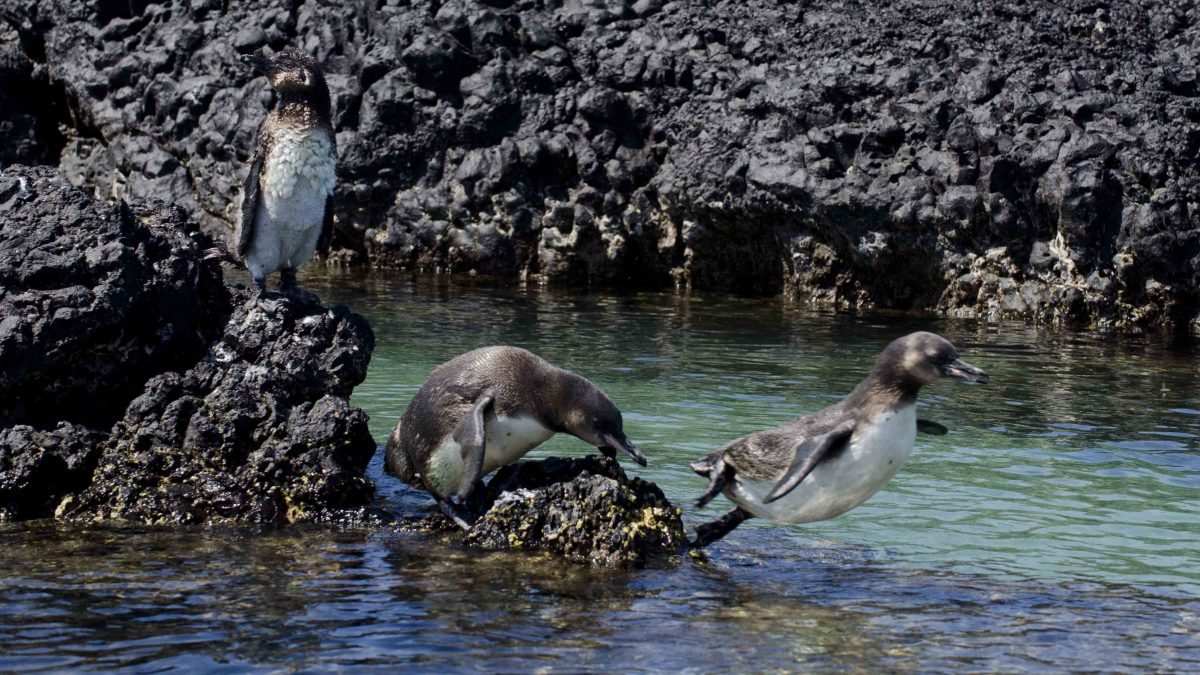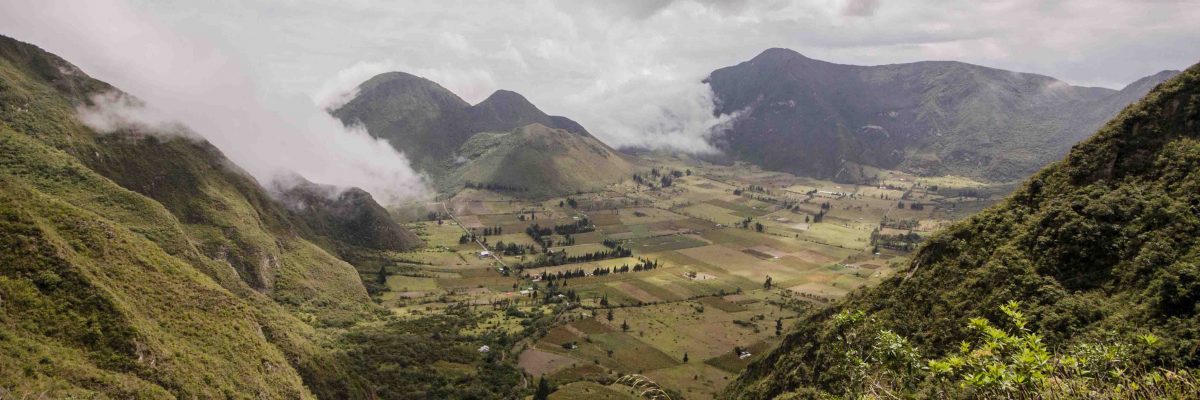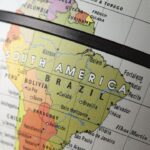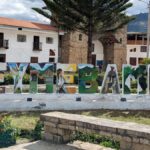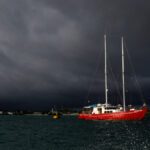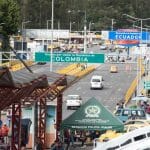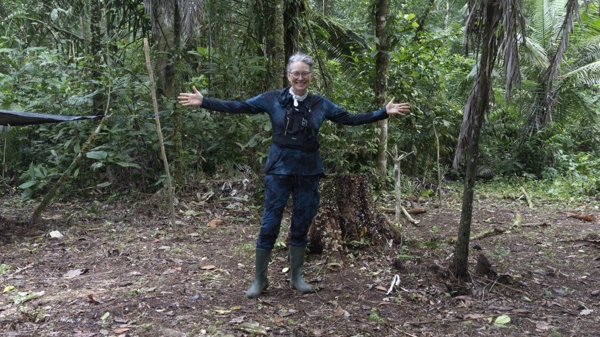First published on July 1, 2022 • Last updated on December 4, 2025
This page may contain affiliate links; if you purchase through them,
we may receive a small commission at no extra cost to you.
UPDATED July 1, 2022
We have great news! An agreement has been found between government officials and CONAIE, bringing an end to the nationwide strike and work stoppage. Roadblocks have been removed, traffic is flowing, and goods are once again arriving in supermarkets.
UPDATED June 29, 2022
Currently, there is no end in sight to the protests taking place in Ecuador. Last week, the US State Department issues a Level 3 Advisory, Reconsider Travel. We are hearing mixed reviews on the ground and tend to agree with US State Department. If you can postpone travel, this is the time to do it.
Currently, indigenous Ecuadorians are outraged at high fuel prices, high food prices, and high-interest rates, among other items. The government has offered to cut fuel by 10 cents per gallon on the already subsidized product. Protesters are asking for a heftier reduction.
There have been deaths and injuries. One soldier died and several military and police were injured in a recent attack on a tanker truck in the Oriente. And 5 demonstrators have died and hundreds have been wounded in clashes with police and military forces.
We would also like to remind folks that it is illegal in Ecuador for foreigners to participate in protests.
Also, we are adding a new English-language news source to our list below, France 24. They are providing consistent coverage that is well-reported.
UPDATED June 20, 2022
When the English language press covers protests in Ecuador, you know they have taken a turn towards violence. That means extra care needs to be taken when planning travel, especially in and out of Quito and in the Imbabura, Cotopaxi, and Pichincha Provinces. While tourists are not a direct target, protesters are cutting off corridors heavily used by the tourism sector meaning that tourism has been severely impacted if not outright prevented. If you are continuing your trip, please consider working hand-in-hand with a local guide who understands conditions on the ground.
If you are needing to travel and are concerned about safe passage, the Ministry of Tourism has started a helpline. You may fill out a form here. Or contact these individuals – we recommend using WhatsApp:
- Imbabura, Carchi, Esmeraldas, Sucumbíos, Orellana, Napo, and Pichincha (but not Quito), contact Christian Garzón +593-95-988-1928
- Cotopaxi, Tungurahua, Chimborazo, Pastaza, Azuay, Cañar, Morona Santiago, Zamora Chinchipe, Loja, and El Oro contact Miguel Auqilla at +593-99-995-8546
- Guayas, Manabí, Santa Elena, Los Ríos, Bolívar, and Santo Domingo de los Tsáchilas contact Fanny Condo at +593-99-876-3405
- And for the Galapagos Islands, contact Gabriela Echeverría at +593-99-158-3844.
Also listed as an overall contact in the official news release is Gabriela Suarez at gabriela.suarez@turismo.gob.ec and +593-99-857-0334.
Latest articles on the 2022 protests in Ecuador
- Reuters: Ecuador declares force majeure for oil, state of exception over protests
- France 24, including video: Ecuadorian president declares state of emergency on day 5 of protests
- Telesur, Ecuador: National strike demonstrators defy state of emergency
UPDATED: June 13, 2022
Today, a new round of strikes is taking place in Ecuador. Expect road closures and other inconveniences for the next two days. In the meantime, many of the links in this article from the October 2019 strikes (far more violent and disruptive than this current round) will help you find more information from primary sources including the Ecuadorian government and CONAIE.
This year, CONAIE has 10 demands or requests that are well laid out in this video.
Original Article from 2019
As we are following the news in Ecuador from the United States, it has become quickly apparent that finding out conditions on the ground is tough. Social media is fraught with disinformation. Therefore, it is often difficult to tell news from propaganda. However, what is clear is that people need access to solid, quality information.
That’s why we are pulling together this list of important links. At this time, we understand that some people have little faith in the Ecuadorian government, in news outlets within Ecuador, or with social media accounts run by the government. Despite that, we are including official channels of communication, especially when it comes to transportation.
If you would like to see links added to this article, please contact us via email, leave a comment on this article, or send us a message on Facebook, Twitter, or Instagram.
What’s Happening in Ecuador
On October 3, Ecuadorian President Lenin Moreno removed subsidies for gasoline and diesel. This act immediately raised prices at gas stations throughout Ecuador. Thus, transportation unions across the nation held massive protests.
In response to some of the violence and looting that took place during mainly peaceful protests, the President declared a two-month State of Emergency.
In the last couple of days, indigenous leaders have called for a mass protest in the capital, Quito. While reasons include the removal of gas subsidies, there is a list of other reasons why native Ecuadorians are protesting, including other austerity measures in the works.
Some Ecuadorian citizens believe that former President Rafael Correa is manipulating this situation. He has called for re-elections and has offered himself as a candidate. He is currently wanted for arrest by the current government.
On Tuesday, indigenous groups throughout Ecuador were making their way to the capital. Also, President Moreno relocated his government from Quito to Guayaquil.
On Wednesday, protests are taking place nationwide. It is highly recommended that all tourists and foreigners stay off the streets near protest areas. For more advice on avoiding protests in South America, please read our recent article. Bloomberg reports that the Moreno administration is returning to Quito.
President Moreno has proposed a dialogue with indigenous leaders with the intent to end protests. Thus far, I can only find this news in Spanish on El País.
On Thursday, October 10, the US State Department declared a Level 4 Travel Advisory for many parts of Ecuador, including the capital city, Quito, and the large port city of Guayaquil. That means the only international airports in the country are in do not travel zones. Read more below.
On Saturday, October 12, Spanish-language sources on Facebook are reporting that the CONAIE has agreed to meet with President Lenin Moreno. However, the CONAIE website says reports of dialogue are premature and have not posted any confirmation. In the meantime, reports of blocked roads slashed tires on private vehicles, and shortages from food to propane, are everywhere. An international student program at the University of San Francisco, Quito has canceled its Fall session and all international students are being sent back home. This is officially a holiday weekend when most hotels along the coast would be full of vacationing Ecuadorians. Instead, Ecuador is waiting to find out how these protests will change their country.
We will continue to update this article with new information as it comes in.
Best Articles for Day-to-Day recap:
- 3 October: Ecuador Protests: State of Emergency Declared as Fuel Subsidies End
- 4 October: Hundreds Arrested as Ecuador’s Protests Turn Violent
- 5 October: Hundreds Held As President Decries Criminals
- 6 October: Indigenous Groups Block Highways as Protest Continues
- 8 October: Ecuador’s President Moves Seat of Government To Escape Protests
- 9 October: Ecuador Protestors Storm Parliament & Ecuador Government Returns to Capital Amid National Strike
- 10 October: Ecuador Protesters Defy Military Warning With Mass Rallies
- 11 October: Police Officers Released After Being Taken Hostage
Best Link to English Language News Sources:
The BBC is by far the best and most up-to-date English news source. However, I am also including the New York Times. Even though they have been slow to report on the basic day-to-day happenings, when they write articles, they rely on good sourcing.
- The BBC – https://www.bbc.co.uk/search?q=ecuador
- The New York Times – https://www.nytimes.com/topic/destination/ecuador
- Deutche Well in English – https://www.dw.com/search/ecuador
- France 24 – https://www.france24.com/en/live-news/
Best Links to Spanish Language News Sources:
We rely heavily on El País for Spanish-language news. While we will watch headlines from TeleSUR, they are not consistently a trustworthy reporting source.
- El País – https://elpais.com/tag/ecuador/a/
- Deutche Welle in Spanish – https://www.dw.com/es/ecuador/t-17411922
Best Links To News Sources Inside Ecuador
These links have been recommended by Expats. Pinchincha Univeral is a media station running out of Quito, Ecuador. Radio Illuman is an indigenous run media outlet with several Ecuadorian-native Kichwa speakers on the ground.
- Pichincha Universal – http://www.pichinchauniversal.com.ec/
- Radio Illuman – https://www.facebook.com/ilumanfm/
The Quito Airport
Currently, Quito is the only international airport in Ecuador experiencing cancellations. The safest bet is to fly in and out of Guayaquil.
While the Quito Airport is attempting to keep up with the news, your best bet for flight information is to directly contact your airline. All flights are booked. Expect an up-charge change your flight to a sooner date. We hear that airlines are also offering money to those willing to delay travel. These amounts have reached upwards of $800 per seat.
Finally, do not go to the airport without a reservation.
- Main Website: https://www.aeropuertoquito.aero/es/
- List of Carriers and Contact Information: https://www.aeropuertoquito.aero/en/contact-information-for-airlines-at-quito-airport.html
- Twitter page: https://twitter.com/AeropuertoUIO
The Guayaquil Airport
The airport in Guayaquil has not experienced flight cancellations due to the current political climate. However, this may change at a moment’s notice. Please contact your airline BEFORE coming to the airport to confirm availability and schedules.
- Main Website: http://www.aag.org.ec/
- Twitter Page: https://twitter.com/GYE_AAG
Road Conditions in Ecuador
If you are looking to see if a road is open for travel, the best source is Ecuador’s 911 website:
- https://www.ecu911.gob.ec/consulta-de-vias/
- For Twitter users – Ecuador 911 keeps their Twitter feed pretty up-to-date: @ECU911_
- For Facebook – Ecuador 911 maintains their Facebook feed here: https://www.facebook.com/ECU911/
Road Closures, Quito:
Tourists in Ecuador During Political Protest
Problems for most tourists will include:
- sporadic flight cancelations at the Quito Airport
- difficulty arriving at tourist destinations in Ecuador due to road closures from protests; many national, provincial, and city parks have been closed
- access to bottled water and food as supplies are not restocked in grocery stores
If you have an upcoming trip scheduled to Ecuador in the next two weeks, consider rescheduling. If your trip is scheduled for later than two weeks, please wait before canceling. There is still the chance that the government will be able to quell the demonstrations.
CONAIE
Confederación de Nacionalidades Indígenas del Ecuador is the the Confederation of Indigenous Nations of Ecuador. In Ecuador, many indigenous groups are considered nations with their owns rights and laws. At this time, they are the organization leading the current protests. To read what they have to say, check out their online feeds:
- Website – https://conaie.org/
- Twitter feed: https://twitter.com/CONAIE_Ecuador
- Hashtags to follow: #PueblosyNacionalidades | #Política | #Lucha | #Ecuador | #CONAIE | #Antiextractivismo
US Embassy in Ecuador
The US Embassy maintains its current alerts on this page: https://ec.usembassy.gov/news-events/
Their Twitter and Facebook feeds are aimed at diplomacy and Ecuadorian relationships rather than US Citizen services. Your best bet is to read their alerts and subscribe to the Safe Traveler Enrollment Program (STEP).
Canadian Embassy in Ecuador
The Canadian Embassy maintains its current alerts on its Twitter Feed. For emergency services contact information, visit this link. Also, consider registering as a Canadian abroad in order to receive updates by email.
- Twitter Feed: https://twitter.com/CanadaEcuador
Ecuadorian Military Twitter Feeds
In times of national emergency, Ecuador relies heavily on its Armed Forces. For that reason, we are providing the Twitter Links to several military organizations. They are helping to transport people and goods across Ecuador:
- Fuerzas Armadas del Ecuador, Comando Conjunto (Armed Forces of Ecuador, Joint Commander) – https://twitter.com/FFAAECUADOR
- Ejercito Ecuatoriano (Army) – https://twitter.com/EjercitoECU
- Fuerza Aerea Ecuadoriana (Air Force) – https://twitter.com/FuerzaAereaEc
- Armada del Ecuador (Navy) – https://twitter.com/armada_ecuador
If you appreciate this list of links, please let us know! And definitely send us any links you would like added.

